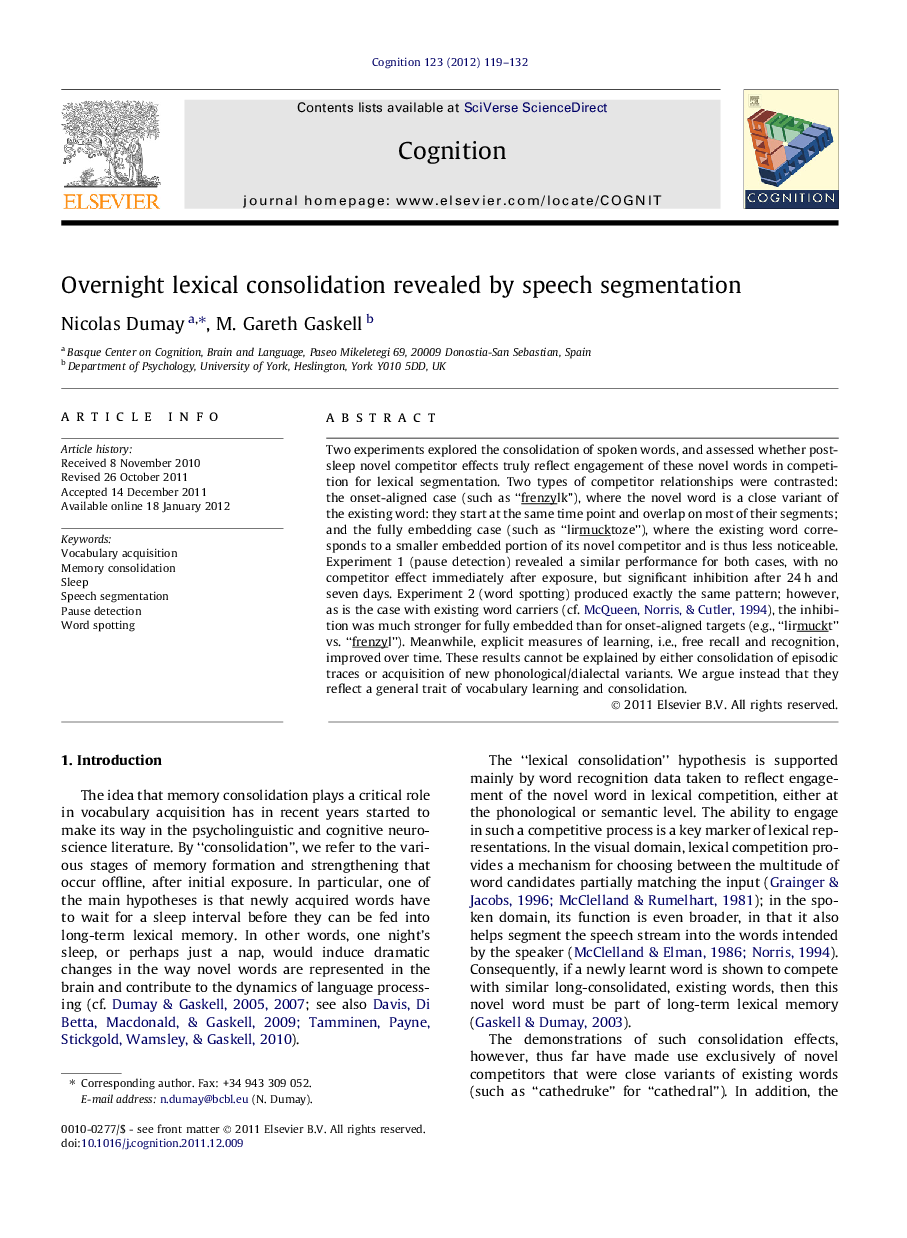| Article ID | Journal | Published Year | Pages | File Type |
|---|---|---|---|---|
| 926519 | Cognition | 2012 | 14 Pages |
Two experiments explored the consolidation of spoken words, and assessed whether post-sleep novel competitor effects truly reflect engagement of these novel words in competition for lexical segmentation. Two types of competitor relationships were contrasted: the onset-aligned case (such as “frenzylk”), where the novel word is a close variant of the existing word: they start at the same time point and overlap on most of their segments; and the fully embedding case (such as “lirmucktoze”), where the existing word corresponds to a smaller embedded portion of its novel competitor and is thus less noticeable. Experiment 1 (pause detection) revealed a similar performance for both cases, with no competitor effect immediately after exposure, but significant inhibition after 24 h and seven days. Experiment 2 (word spotting) produced exactly the same pattern; however, as is the case with existing word carriers (cf. McQueen, Norris, & Cutler, 1994), the inhibition was much stronger for fully embedded than for onset-aligned targets (e.g., “lirmuckt” vs. “frenzyl”). Meanwhile, explicit measures of learning, i.e., free recall and recognition, improved over time. These results cannot be explained by either consolidation of episodic traces or acquisition of new phonological/dialectal variants. We argue instead that they reflect a general trait of vocabulary learning and consolidation.
► We test whether post-sleep new competitor effects generalize to speech segmentation. ► We contrast onset-aligned and fully-embedding novel competitor words. ► Results fit nicely with what we know of the dynamics of lexical processing. ► Results cannot be explained by consolidation of episodic traces/dialectal variants. ► Thus, one night’s sleep is enough to consolidate new words in lexical memory.
